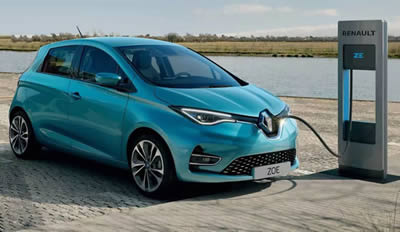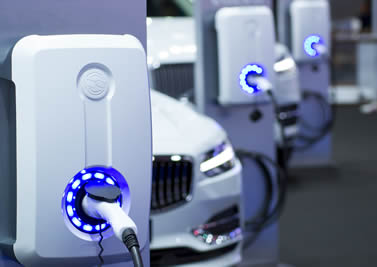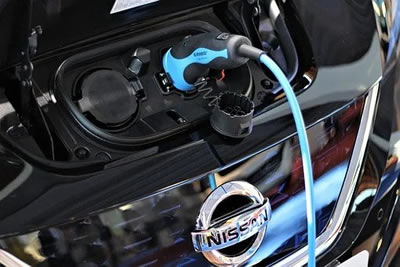Switching To A New Electric Car - The Pros and Cons
Published Date: 1st Dec 2020
The prospect of never having to fill up with petrol or diesel again and super-low running costs are appealing but before you make the switch to an electric car there are some factors you should consider in order to be prepared for the changes an electric vehicle will bring.
What Range Will An Electric Car Offer
Some electric cars are now offering a range of over 200 miles on a full charge, the Nissan Leaf e+ for example has a range of 217 miles. You should bear in mind these figures are the top-end while driving the vehicle in its most economical state. In real world driving and when planning a long trip, you should take this into consideration.

The Renault Zoe is one of the cheaper electric cars on the market right now, with a range of up to 192 miles and the funky and extremely fun to drive MINI Electric has a range of 145 miles. For everyday use with good access to charging stations the range of these popular electric cars should not be an issue at all.
If you have a long trip in mind, a little bit of planning beforehand maybe something new but will be beneficial. A good resource is Zap Map which helps you find nearby or en-route charging stations for your pit stop, you will probably want to look for rapid chargers too which could give your car a near full charge while you take a break for a coffee and bite to eat.
Have a backup charging station planned, don’t just rely on locating a single charging station on route, it’s prudent to have a backup because occasionally a station can be out of order or extremely busy meaning you’ll have to wait to get access to a charging point.
Also think about what type of driving you are doing, if you are zooming down the motorway at 70mph you won’t get the optimum range. You may also want to consider putting the car in its most economical drive mode, usually called something like ECO or Green mode.
The government is investing heavily in electric car infrastructure and the number of charging stations is growing quickly across the UK.
Access To Charging Facilities At Home
You are going to need to charge you vehicle regularly and in ideal world if you can do that overnight at home that will make life a lot easier.
If you have a garage attached to the house, the chances are getting a charging box fitting will be easy. If you have an off-road drive and can park close to the house again a charging box should be a straightforward option. The popular option is a 7kW charging box which should comfortably give you a full charge overnight. For example, a standard Nissan Leaf with 40kWh battery should take around 5 hours to get a full charge with a 7kW home charging box.
The UK Government is also offering a plug-in grant to cover most of the cost of getting a home charging box supplied and fitted.
Access To Communal Charging Facilities At Work
If charging your electric car at home is an issue, then you are going to need an alternative source. Many companies are investing in charging stations, so that could be a good option, hooking up to a charging point during the day while you’re in the office is going to be very convenient.

If your employer does not already offer charging stations in parking areas you could enquire, there’s a fair chance plans will already be in place.
Without a home or workplace charging station, an electric car may not be a perfect fit. You’ll need to consider how and when you will have access to a charging station and so a little bit of local research may be in order. Your local supermarket or shopping centre may be a good option and could be equipped with charging stations. If you are planning a shopping trip it’s a great opportunity to charge the vehicle while you’re away.
Can I Charge Through A regular 3 Pin Electric Socket?
It is possible to charge via a regular 3 -pin socket, and a lot of electric cars will come with adaptor cables to do so. The issue is it will be slow with a power supply of around 2.3kW a full charge could take over 20 hours depending on the size of battery.
If you consider a lot of the popular home charging boxes are 7kW and will probably give you a full overnight charge they are no brainer with a government grant helping you to cover most of the cost.
How Do I Pay At Charging Stations?
Most providers offer a membership/subscription of some kind or pay as you go and once you’ve signed up and registered your payment method, you usually use a membership card (similar to using a contactless credit or debit card) and/or smartphone app to do your charging.

The largest UK network of charging stations belongs to Polar (owned by BT Chargemaster). They offer a free pay as you go membership or paid subscription, the latter also gives you access to free use of the slower charging stations. If you have a Polar station within walking distance equipped with free charging it could be a no-brainer to sign up for the subscription service. You can leave your car there overnight, especially if you are lucky enough to be a very short walk away.
If you are buying your first electric car a bit of planning is advised, you don’t want to sign up for a subscription service and find there are no stations near you. Visit the Zap Map website and do some research on which charging stations are local and would be most convenient to use, bear in mind the type of charging that is available too.
As well as Polar there are other popular providers like; Shell Recharge, Pod Point, ChargePlace Scotland, GeniePoint, Eugenie etc.
The free charging stations you get access to with a subscription service are the slower ones and will require the vehicle to be left for several hours at least. Rapid charging is more expensive but can you can get something in the region of an 80% charge in 30 minutes for most mainstream electric cars.
What Is An Electric Car Like To Drive?
Equipped with a single transmission there’s no gear changing and just two pedals, a brake and accelerator, you will also find the brake doesn’t actually get used that much. Once you’re accustomed you should find an electric car is a very pleasant experience, the drive is very smooth and so quiet it may seem a little strange at first but for the better.
If you are often stuck in rush hour traffic you will also find the tranquillity of being sat in an electric car an improvement over a petrol or diesel car.
Maintenance Costs and Considerations
There are less moving parts in an electric car and although you may need to top up coolant, windscreen washer and brake fluid in the same way, there's no engine oil to check or top up. Overall your maintenance costs should be considerably less and although electric cars haven't been around all that long, all indications are that they are extremely reliable.

If you buy your electric car from new you'll have scheduled servicing in the same way you do with a conventional petrol or diesel, it'll just mean booking the vehicle in at your nearest official service centre.
Probably the biggest consideration of an electric car is the battery, all manufacturers offer extensive warranties. A battery will lose some of it's charging capacity over time and the thing to look at here are the finer details of the warranty.
For example, if a 40kW Nissan Leaf's battery falls below 9 out of 12 bars within the first 100,000 miles or the first 8 years warranty period, Nissan will repair or replace the damaged battery and/or related components free of charge.
The warranty and it's finer details are something you should be taking the time to read carefully when comparing electric cars, especially if you intend to keep the car for more than a few years.
Financial and Environmental Considerations
Consider a 150 miles round trip in an economical, conventionally powered petrol car emitting 100g/km, this would mean emitting around 24kg of harmful emissions into the environment during the roundtrip, an electric car will obviously emit zero emissions.
For the same trip you might expect to spend £15-£20 in petrol whereas an electric car cost would be just a few pounds.
Summary – Should You Go Electric?
If you can get a home charger then it is definitely a serious consideration. If you live in a flat or cannot get a home charger and don’t have access to a workplace charger either, then you have more to think about as is won’t be as convenient.

Electric cars are still fairly expensive compared to conventionally powered petrol and diesels; however, you could save a hell of a lot on running costs.
For high mileage users with good access to charging points it is a good option financially, for those doing very little mileage then financially it will make less sense as you’re unlikely to recoup the extra cost of a an electric car through savings on running costs.
If you care about your carbon footprint and the ecological/environmental impact, then an electric car is the way forward.
If you are not quite ready to make the switch to full electric or even a plug-in hybrid just yet, there are a wide range of self-charging hybrids that could be the perfect steppingstone in the meantime.
For example, Ford have produced a range of mild hybrids that combine battery and energy regeneration with their award-winning EcoBoost petrol engine to produce cleaner, more economical cars available in popular models the Ford Fiesta and Ford Focus. Other mainstream manufacturers are also bolstering their range of self-charging and plug-in hybrids, Renault for example has been rolling out a new range of E-Tech plug-in and self-charging hybrid cars.
